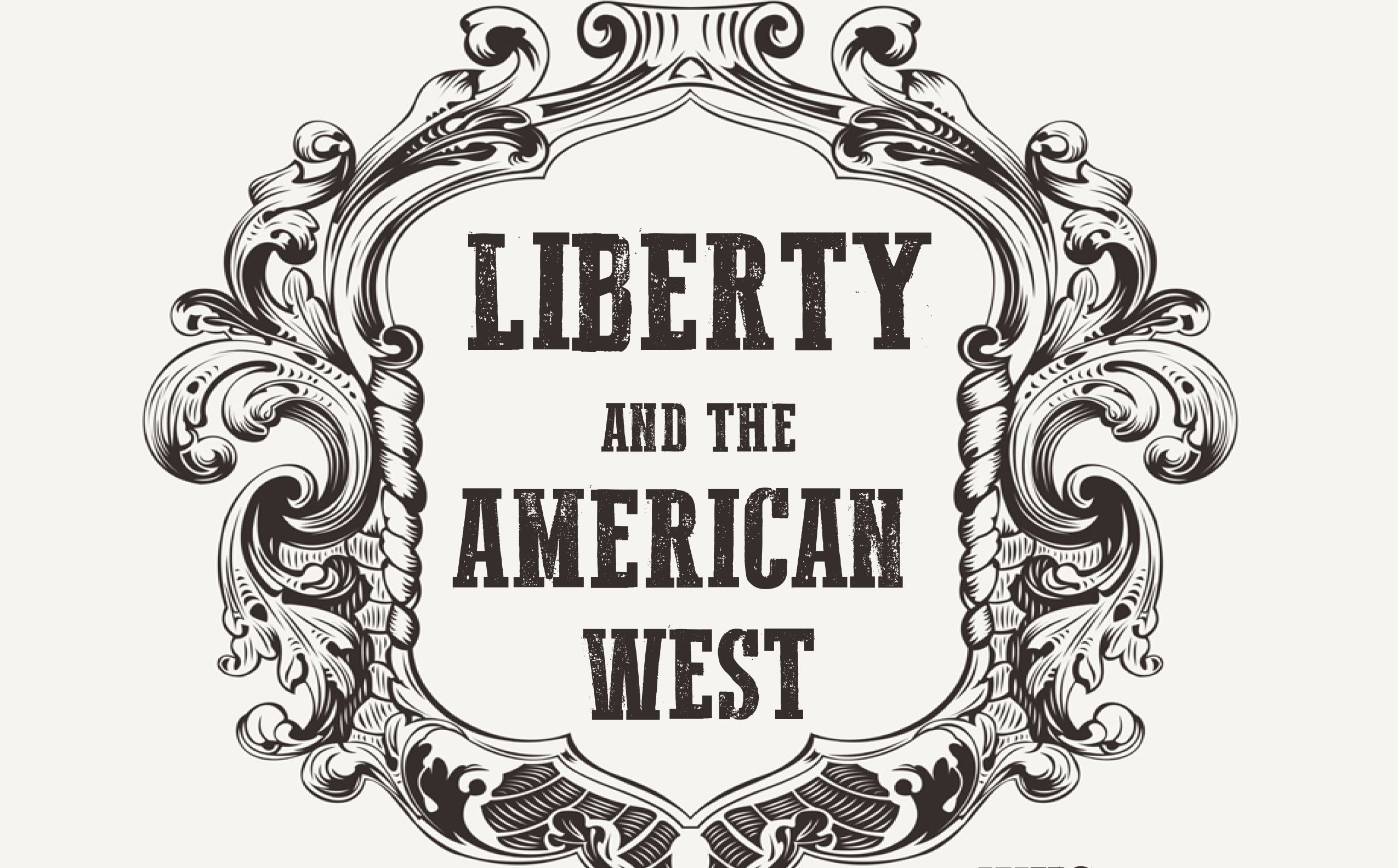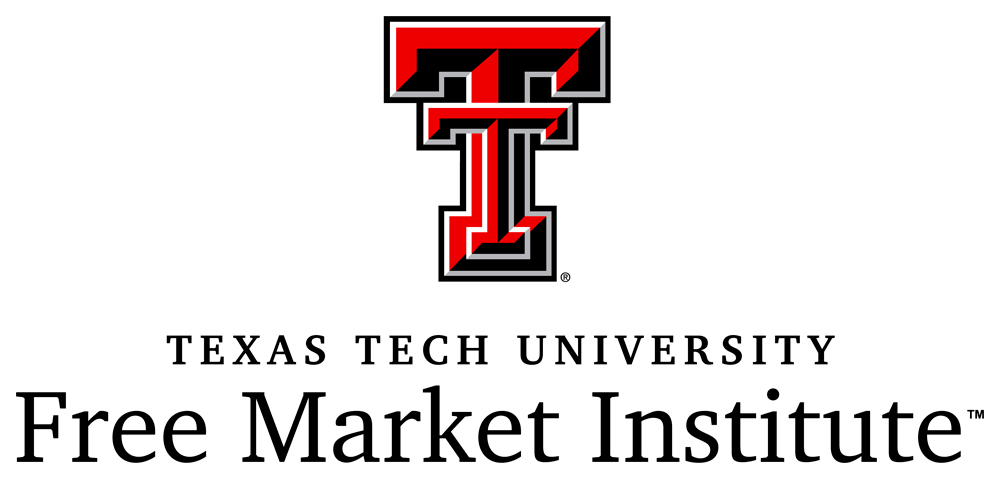Event Archives
FMI Public Speaker Series
December 1 — Why Free Speech on Campus Matters: Its Scope and Limits
November 10 — Rational Optimism and the Evolution of Everything
October 20 — The Fatal Conceit of Foreign Intervention
September 27 — Finding Your Purpose: Why Economic Freedom Matters
April 6 — Could Anarchy Work Better than You Think?
March 3 — Private Governance: Creating Order in Economic and Social Life
February 5-6 — Liberty and the American West
Why Free Speech on Campus Matters: Its Scope and Limits — December 1
Donald Downs, Alexander Meiklejohn Professor of Political Science, Law, and Journalism at University of Wisconsin-Madison, visited Texas Tech University to deliver a public lecture for the fall 2016 FMI Public Speaker Series. This event was part of the Open Inquiry Project, sponsored by the Institute for Humane Studies at George Mason University with funding from the John Templeton Foundation. The Division of Institutional Diversity, Equity, & Community Engagement and the Institute for the Study of Western Civilization at Texas Tech University also sponsored this event.
In his lecture, Prof. Downs addressed recent controversies on college campuses that have led to calls for university administrators to regulate the works and actions of individuals on the campuses they oversee, favoring 'fair' speech over free speech. His remarks explored the reasons behind these controversies and the consequences of stifling open inquiry and academic freedom on campus.
Rational Optimism and the Evolution of Everything — November 10
Matt Ridley, columnist for The Telegraph and The Times, and member of the Science and Technology select committee for the House of Lords in Great Britain, visited Texas Tech University to deliver the keynote lecture for the fall 2016 FMI Public Speaker Series.
In his lecture, Dr. Ridley commented on research that informs two of his recent publications. In his best-selling book, The Rational Optimist: How Prosperity Evolves, Ridley argues that the world as a whole is getting not just richer, but healthier, happier, cleverer, cleaner, kinder, freer, more peaceful and more equal, and that this is a consequence of innovation, exchange and specialization, resulting in people working ever more for each other. In his recent book, The Evolution of Everything: How New Ideas Emerge, he argues that human society, like the natural world, evolves in a spontaneous way, and that we are far too ready to attribute order, complexity and progress to deliberate planning.
The Fatal Conceit of Foreign Intervention — October 20
Christopher Coyne, F.A. Harper Professor of Economics at George Mason University, visited Texas Tech University to deliver a public lecture based on his research exploring the unintended consequences of foreign intervention for both military and humanitarian reasons.
In his lecture, Prof. Coyne challenged the rationale underlying efforts to intervene in the affairs of foreign countries on two primary grounds: (1) incentive problems and (2) knowledge problems. Drawing on research that informs his two previous publications, After War: The Political Economic of Exporting Democracy and Doing Bad by Doing Good: Why Humanitarian Action Fails, Prof. Coyne argued that most foreign interventions are undertaken without sufficient regard for the complexity of the problem to be 'solved' and the possibility of unintended consequences that emerge from the imposition of top down solutions. Finally, he argued that such grand plans to shape the institutions of foreign countries may ultimately have negative consequences for domestic institutional change.
Finding Your Purpose: Why Economic Freedom Matters — September 27
Anne Rathbone Bradley, Vice President of Economic Initiatives at the Institute for Faith, Work & Economics, visited Texas Tech University to deliver a public lecture based on her research exploring the intersections of economics and theology.
In her lecture, Dr. Bradley discussed interpretations of particular biblical verses, with respect to the obligations Christians have for seeking purpose in their lives and serving as effective and faithful stewards of the resources and talents at their disposal. Furthermore, she developed an argument addressing the institutional framework that is most appropriate to upholding the obligations to which believers in the Christian faith commit themselves.
Could Anarchy Work Better than You Think? — April 6
Peter Leeson, Duncan Black Professor of Economics and Law at George Mason University, visited Texas Tech University to deliver a public lecture based on his research published in Anarchy Unbound: Why Self-Governance Works Better Than You Think.
In Anarchy Unbound, Prof. Leeson uses rational choice theory to explore the viability of self-governance, particularly in instances where one would least expect it to "work" relative to state-provided forms of governance. In his public remarks, Prof. Leeson drew on evidence from the past and present, provocatively arguing that, in some cases, anarchy may even outperform government as a system of social organization. His remarks challenged the conventional wisdom on the possibility of widespread and stable social cooperation under systems of self-governance.
Private Governance: Creating Order in Economic and Social Life — March 3
The Free Market Institute (FMI) hosted a public event focused on the recently published volume, Private Governance: Creating Order in Economic and Social Life. The event featured formal remarks from the book's author, Edward Stringham, who serves as Davis Professor for Economic Organizations and Innovation at Trinity College.
In Private Governance, Prof. Stringham documents several historical cases, in which private individuals have contracted to develop and enforce rules governing complex economic transactions in the absence of state enforcement. His remarks highlighted several examples, including historical examples (the emergence of stock markets in Europe) and contemporary examples (dispute resolution mechanisms developed by electronic commerce organizations such as eBay and PayPal).
The event also featured commentary from Bruce Benson, Emeritus Professor of Economics at Florida State University and spring 2016 FMI Templeton Visiting Scholar, and David Friedman, Professor of Law at Santa Clara University. Profs. Benson and Friedman have both published extensively in the areas of private governance and the provision of law and order in the absence of state enforcement. Each of them offered their critical commentary on the findings presented by Prof. Stringham.
Liberty and the American West — February 5-6

The Free Market Institute (FMI) and the Institute for Humane Studies (IHS) at George Mason University co-hosted an IHS On-Campus Education Program as part of their Weekend Exploring Liberty series. The program, titled Liberty and the American West, brought together students and faculty from Texas Tech University for lectures and discussions on topics related to the history and development of the American West.
Other discussion topics included: the development of mineral rights, slavery and westward expansion in Texas, Native American customary law and the development of private solutions to public problems in the American West.
Bruce Benson – Vigilantes in the American West:
Private Solutions to Government Failure in the Provision of Justice
P.J. Hill – The Not So Wild, Wild West: Property Rights on the Frontier
[Back to Upcoming Events] [Back to Top]

Free Market Institute
-
Address
Texas Tech University - Box 45059 - Lubbock, TX - 79409-5059 -
Phone
806.742.7138 -
Email
free.market@ttu.edu
